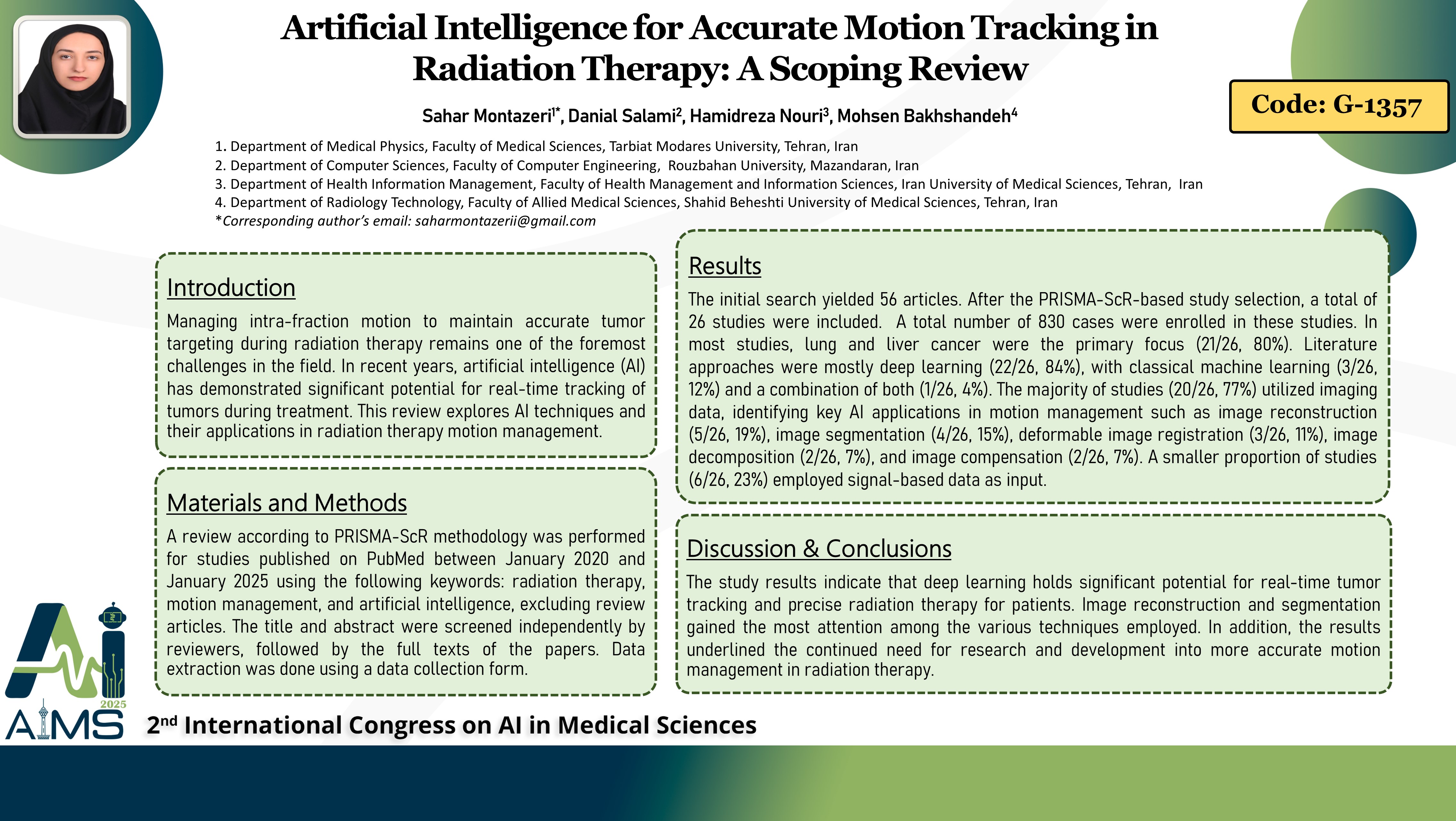Artificial Intelligence for Accurate Motion Tracking in Radiation Therapy: A Scoping Review
Code: G-1357
Authors: Sahar Montazeri * ℗, Danial Salami , Hamidreza Nouri , Mohsen Bakhshandeh
Schedule: Not Scheduled!
Tag: Cancer Diagnosis & Treatment
Download: Download Poster
Abstract:
Abstract
Background and aims: Managing intra-fraction motion to maintain accurate tumor targeting during radiation therapy remains one of the foremost challenges in the field. In recent years, artificial intelligence (AI) has demonstrated significant potential for real-time tracking of tumors during treatment. This review explores AI techniques and their applications in radiation therapy motion management. Method: A review according to PRISMA-ScR methodology was performed for studies published on PubMed between January 2020 and January 2025 using the following keywords: radiation therapy, motion management, and artificial intelligence, excluding review articles. The title and abstract were screened independently by reviewers, followed by the full texts of the papers. Data extraction was done using a data collection form. Results: The initial search yielded 56 articles. After the PRISMA-ScR-based study selection, a total of 26 studies were included. A total number of 830 cases were enrolled in these studies. In most studies, lung and liver cancer were the primary focus (21/26, 80%). Literature approaches were mostly deep learning (22/26, 84%), with classical machine learning (3/26, 12%) and a combination of both (1/26, 4%). The majority of studies (20/26, 77%) utilized imaging data, identifying key AI applications in motion management such as image reconstruction (5/26, 19%), image segmentation (4/26, 15%), deformable image registration (3/26, 11%), image decomposition (2/26, 7%), and image compensation (2/26, 7%). A smaller proportion of studies (6/26, 23%) employed signal-based data as input. Conclusion: The study results indicate that deep learning holds significant potential for real-time tumor tracking and precise radiation therapy for patients. Image reconstruction and segmentation gained the most attention among the various techniques employed. In addition, the results underlined the continued need for research and development into more accurate motion management in radiation therapy.
Keywords
Radiation Therapy, Motion Management, Artificial Intelligence
